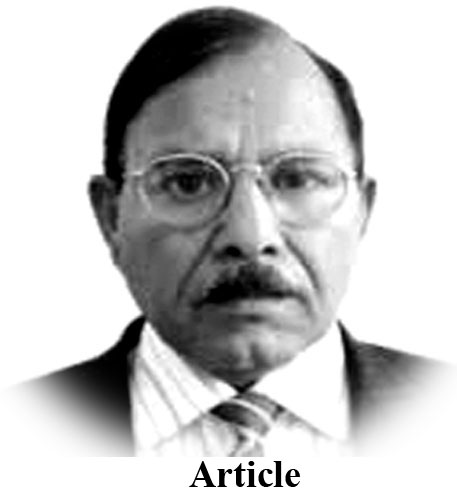Malik Ashraf
THE PTI government under the stewardship of Prime Minister Imran Khan has exhibited unflinching commitment, in spite of financial constraints, in regards to poverty alleviation through empowerment and financial inclusion. Following the launch of irreproachable initiatives like Kamyab Jawan, Hunarmand Jawan and Kifalat Programme yet another initiative named Ehsas Amdan Programme was launched on 21 February. The programme envisages to provide cows, buffalos and goats to the poor people and 60% beneficiaries would be women who will receive one cow, one buffalo and three goats each. Under the proposed project to be commenced in 375 rural Union Councils of 23 districts across four provinces of Pakistan, 200,000 assets would be distributed among the deserving households initially and the programme would be gradually expanded based on the results achieved. It is pertinent to point out that one of the major factors of economic backwardness in the third world countries, particularly Pakistan is the non-participation of women in the productive economic activities. Women are 49.2 % of the population in Pakistan and majority of them live in the rural areas.
The Ehsas Amdan programme will surely help them in boosting the family income and provide financial support to their family members. The women in the rural areas are quite used to rearing animals like cows, buffalos and goats and the initiative would not require any formal training or guidance to them. They would straightaway become the earning member of the family by selling the products of these animals in exchange for instant cash. The initiative, first of its kind in Pakistan, not only sets well into the rural culture of the country but also has a great potential in removing poverty and generating economic activity at the local level which can ultimately become a contributor to the national economy. The Ehsas Amdan Programme is a complimentary initiative to the Ehsas Kifalat Programme which was launched on 31st January by Prime Minister Imran Khan and while speaking on the occasion he had broken the news about the initiation of Ehsas Amdan Programme. The Ehsas Kifalat Card programme was a significant step towards poverty alleviation and amelioration of the indigent and poor. The initiative envisages monthly cash payment of Rs.2000 monthly to seven million women. Coming under the umbrella of Ehsas Programme it boasts of major differences with the earlier BISP initiative. To ensure that unlike BISP only the deserving women benefit from it the survey methodology has been revised to enable the ongoing identification of beneficiaries through desk registration. Also a new system of payment has been installed, cash transfer has been increased and it offers digital and financial inclusion opportunity to women by providing better access to mobile phones. All beneficiaries will be able to access the payments at special ATMs and bank branches and will also have option to deposit funds into saving accounts.
The Prime Minister while launching Ehsas Amdan Programme also revealed that 2000 people would be given interest-free loans and 50,000 youths would be awarded scholarships each year. Recounting the steps to provide succor to the homeless he said that 180,000 shelter homes had been established and the network was being extended across the country. He said the government would also provide health cards to six million people from the poor segments of the society. The hallmark of the schemes undertaken by the government is that due consideration has been given to maintaining gender balance in regards to the beneficiaries of the programmes. Kifalat and Amdan Programmes are particularly designed to ensure financial inclusion of women which is an essential tool in the empowerment of women in a society, and by extension, the economic development of a country. According to latest figures from the World Bank, just 7% of women in Pakistan have access to financial services which is probably the lowest in the world. The phenomenon is a sequel to the failure of successive governments to prioritize financial inclusion of women notwithstanding the fact that countries across the globe have benefitted from the revolution in mobile banking. Resultantly the gender gap in financial services is quite substantial. Even some of the African countries are better off than Pakistan in this respect. The Kamyab Jawan Programme supplemented by Hunarmad Jawan ( skilled youth) initiative are designed to prepare youth for employment at home and abroad by imparting training and education in high-tech and emerging technologies. These two measures are essential ingredients of promoting entrepreneurship.
An incisive appraisal of the developed countries reveals that their phenomenal economic growth was propelled by entrepreneurship, which is rightly regarded as a key to economic prosperity. Entrepreneurship is the capacity and willingness to start a new business venture and the hallmark of entrepreneurial spirit is innovation and risk taking. Countries like USA, Japan, Denmark, Germany, Taiwan are quintessential of the role that entrepreneurship can play in the economic development of a country and therefore are role models for other nations aspiring to achieve self-sustained growth in the ever increasing competitive global market. Entrepreneurship therefore has rightly been called an engine of growth. In Pakistan the government employs only 7-8% of the labour force. So like all other nations the only option available to it is to propel economic activity in the private sector through encouraging entrepreneurship in regards to the establishment of small and medium size business and industry by making available necessary resources and technical know-how to the youth entering the labour market. All the foregoing steps taken by the government surely reinforce the credentials of the PTI government as a pro-masses entity with an unswerving commitment to alleviation of poverty and empowerment of the deprived and less privileged segments of the society particularly women.
— The writer is freelance columnist based in Islamabad.










